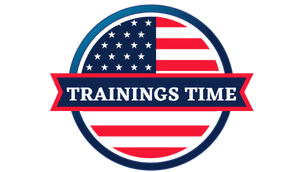Description
RECORDED TRAINING COURSE
The rules governing travel pay vary based on a number of factors, including whether workers are traveling on assignment, driving company vehicles or their own cars, etc.
And some of these factors, such as “commuting time”, “waiting time”, or “on-call time” are additionally governed by FLSA rules – and oft times are rife with employee fraud. It’s enough to drive even experienced payroll managers bonkers!.
Session Highlights:
Let Mark pass on his valuable experience as an auditor in this area. Among other things, you will learn:
1) Accountable Plans – The basis for making travel and other expense reimbursements non-taxable to employees.
- Elements of an accountable plan
- Requirements for workers and employers
- Evidence of business connection
- Substantiation and documentation of expenses.
- Accounting for advances
- Per Diems
2) FLSA Guideline: Wage versus Commute Expense
- Day Trips
- Travelling to and from work
- Travel on off work hours
3) The One–Year Rule-is there such a thing as breaking residency and restarting the reimbursement clock?
- Temporary vs Long-Term assignments away from home office
4) The IRS rules for transportation expenses: mileage, car rental, airfare, hotel, meals and entertainment
- Mass Transit and Parking Benefits
- Mileage reimbursement maximum
- Personal Use of Company Car
- Substantiation of meals and entertainment – Directly Related and Associated Tests, Reasonable and Necessary
5) Accounts Payable vs Payroll Dept communication
- Intended Audience: Payroll and Accts payable staff and management. CFO’s, Corporate Tax Travel managers, accountants
Why Should You Attend:
- Define what the IRS means by “accountable plan.”
- Review your current policies and procedures for completeness.
- Analyze which method(s) for travel related expenses work best for your company
- Educate managers who send employees travelling on proper communication and accounting procedures
- Identify which expense reimbursements are taxable wages.
- And much, much more.
Who Should Attend:
- Payroll Professionals
- Human Resources Professionals
- Accounting Personnel
- Business Owners
- Lawmakers
- Attorneys
- Any individual or entity that must deal with the complexities and technicalities within the payroll process
In this Recorded Session, you can listen to Q&A which includes direct answer from our expert speaker.





